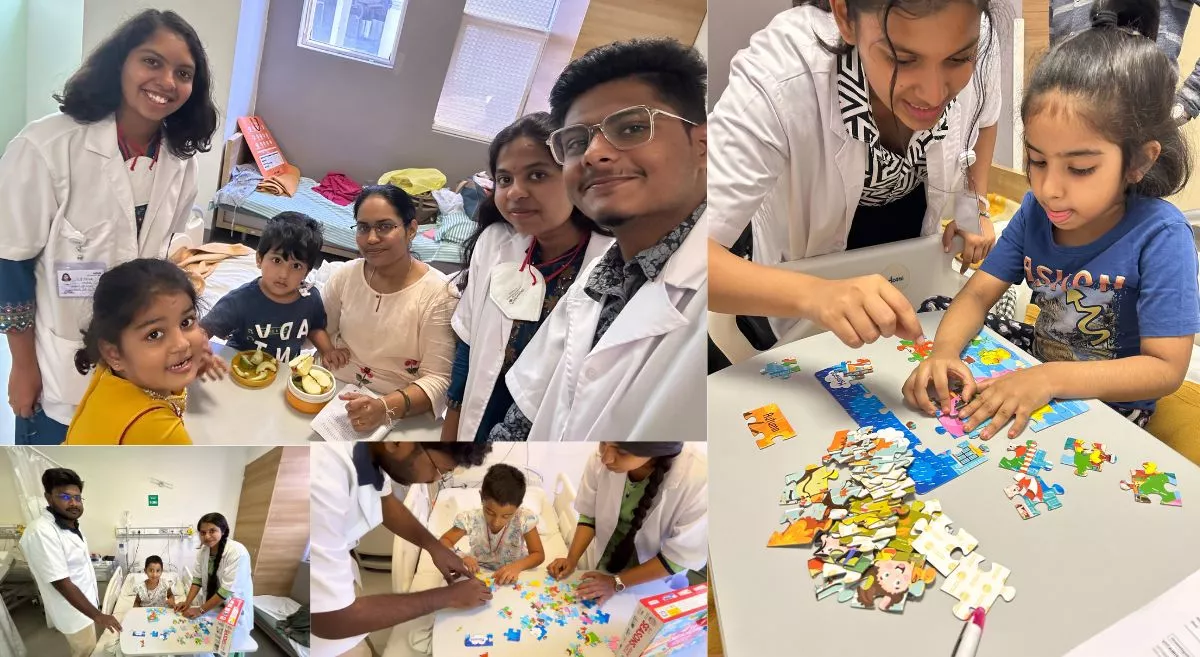Isn't childhood a wonderful time? When we look back, most of us can recall enjoyable memories. Most of these memories are associated with our grandparents. The light of our childhood, as I may recall, the angels with whom we share a deep and beautiful connection. Those who once held our tiny hands are now struggling to carry out basic life activities. Those elders who taught us to vocalize are often seen struggling to remember words. It is very essential for all of us to care for those wonderful people who once cared for us. Caring for them might not be as easy a task as it may seem. It is often found to be tiring, challenging, and strenuous to balance full-time work, taking care of the children, and trying to care for our elderly parents. We, the palliative care team, aim to make this a pleasant experience for the caregivers as well as the elderly patients.
What is Geriatric palliative care? How is it different from Geriatric care?
Unlike Geriatric care that deals with the care of the elderly population, Geriatric palliative care focuses on improving the quality of life for the elderly with serious life-limiting illnesses and provides support to the families and caregivers of these patients.
Why Geriatric Palliative care?
The percentage of the geriatric population is expected to double by 2050, meaning that 1 in every 5 individuals will be a senior citizen. Although medical advancements have progressed tremendously, and we have been able to extend the length of human life by decades, we are still unable to deal with the natural process of aging. Older adults have unique palliative care needs compared to the general population; the kind of symptoms they exhibit and their intensity, physical and emotional challenges, and social needs all vary. Hence, doctors, patients, and loved ones should take the time to understand the options available and make realistic decisions about how they would like their loved ones to live their final days.
What is the role of palliative care in treating geriatric patients?
Traditionally, people would think that palliative care is only for cancer patients; however, in recent times, we have expanded the horizon of palliative care to support the most vulnerable geriatric population, for whom aggressive management or a cure might not be possible most of the time. Most of the elderly population suffer from various chronic illnesses like dementia, chronic chest or heart disease, end-stage renal disease, end-stage liver disease, Parkinson's disease, or just frailty.
Comfort and quality of life are the vital care goals of geriatric palliative care, wherein quality of life encompasses various parameters like mental and physical well-being, social approval, and life fulfillment. We, the palliative care team at Aster CMI, aim to achieve the above-mentioned goals by reducing the symptom burden of patients. Symptom burden here includes pain, eating problems, breathlessness, agitation, restlessness, or simple frailty, etc. We make comprehensive treatment plans by collaborating with numerous specialties, including internal medicine, psychiatry, palliative care, geriatric medicine, etc. These strategies not only help in preventing repeated hospitalizations but also provide the family with a concrete plan of action, ensuring quality management in situations of emergency.
Featured Blogs
One Aster
Personalized Medical Assistant for all your healthcare needs.
Book instant appointment, pay securely, eConsult with our doctors and save all your health records at one place are some of the benefits of OneAster App. It is everything you need, to manage your family Health.
* Registration available only for valid Indian mobile number






